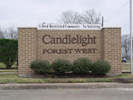-
-
-
-
-
-
-
-
-
-
-
-
-
-
-
-
-
-
Hurricane Preparedness Info
-
-
-
-
-


A hurricane is on its way. What do I do?
· Listen to a NOAA Weather Radio for critical information from the National Weather Service (NWS).
· Check your disaster supplies. Replace or restock as needed.
· Bring in anything that can be picked up by the wind (bicycles, lawn furniture).
· Close your windows, doors and hurricane shutters. If you do not have hurricane shutters, close and board up all windows and doors with plywood.
· Turn your refrigerator and freezer to the coldest setting. Keep them closed as much as possible so that food will last longer if the power goes out.
· Turn off propane tank.
· Unplug small appliances.
· Fill your car’s gas tank.
· Create a hurricane evacuation plan with members of your household. Planning and practicing your evacuation plan minimizes confusion and fear during the event.
· Find out about your community’s hurricane response plan. Plan routes to local shelters, register family members with special medical needs and make plans for your pets to be cared for.
· Obey evacuation orders. Avoid flooded roads and washed out bridges.
===========================================================================
Here is a link to the National Weather Service - National Hurricane Center for more information.
===========================================================================
Hurricane Season Began June 1, 2019
June 1st marked the official start of the 2019 Atlantic hurricane season, which runs through Saturday, November 20th. Per Harris County's Department of Homeland Security & Emergency Management, The National Oceanic and Atmospheric Administration (NOAA) Prediction Center released its "seasonal outlook that predicts that nine to 15 named storms could potentially develop in the Atlantic basin this year. Of these storms, four to eight could become hurricanes; and two to four could strengthen into major hurricanes with winds of 111 mph or higher.
"If that forecast holds, it would make for a near-normal season. An average hurricane season produces 12 named storms, of which six become hurricanes, including three major hurricanes. Regardless of the forecast, it only takes one storm to make it a bad year."
Please prepare for you and your family today by following this four-step preparedness process by the Houston Office of Emergency Management: make an emergency plan, have an emergency kit, be informed about disasters, and help members of your community prepare themselves.
Make an Emergency Plan
The first step in preparing for disasters is to make a plan. Have a plan for what you and your family will do in an emergency. Consider how you will communicate with each other, where you will meet, and who you can leave messages with out-of-state if you can't reach people locally. Learn more about preparing a plan: http://www.readyhoustontx.gov/prepare-today/make-a-plan/.
Houston residents who might need additional help in evacuating during a disaster can visit the OEM website to learn more about the State of Texas Emergency Assistance Registry (STEAR), which allows residents to provide information on their specific situation to emergency management officials who will work to help them evacuate safely, or provide them with the appropriate life-sustaining help they need in a disaster: http://bit.ly/2ELDMgq
Have an Emergency Supply Kit
After you have your plan, start building a kit. Houston residents should have what they need to be on their own for 5-7 days following a storm. This includes food, water, medications, and individual needs such as medical devices or pet supplies.
The City of Houston Disaster Preparedness Guide (DPG) is updated annually and provides information about emergency planning to Houston residents. The Guide is available in six languages for download:
- English
- Español (Spanish)
- Tiếng Việt (Vietnamese)
- 中文 (Chinese)
- العَرَبِيَّة (Arabic)
- Français (French)
Stay Informed
If you stay informed, you'll know when disasters are going to strike. Know where to go to get updated information, including local television and radio, as well as official websites such as:
- Houston Office of Emergency Management: houstonoem.org
- Houston Emergency Site: houstonemergency.org
- National Weather Service Houston-Galveston: weather.gov/houston
-
Official Social Media Channels:
-
City of Houston Emergency Information:
- Twitter: @AlertHouston
- Facebook: facebook.com/alerthouston
-
City of Houston Office of Emergency Management:
- Twitter: @houstonoem
- Facebook: facebook.com/houstonoem
- Instagram: @houstonoem
- Nextdoor: nextdoor.com/pages/houston-office-of-emergency-management
-
City of Houston Emergency Information:
The City of Houston offers emergency alerts through the AlertHouston emergency notification system. People who live or work in Houston can receive emergency notifications via email, text message and through a mobile app from six different categories:
- Emergency Incidents (such as hazmat situations or law enforcement activity)
- Severe Weather information
- Major Traffic & Transit Interruptions
- Missing People (AMBER Alerts & Silver Alerts)
- Information regarding Special Events & Planned Drills
- Recovery information for people impacted by a disaster (such as the flooding from Hurricane Harvey or Tax Day)
Register for alerts today at www.alerthouston.org.
Know your Neighbors
Your neighbors can be a great source of help immediately after a disaster. Get to know your neighbors, particularly those too elderly or too ill to independently plan or prepare themselves for a disaster. By knowing your neighbors ahead of time, your community will work better as a team when disasters strike.
For more information about helping your neighborhood get ready for hurricane season, visit www.houstonoem.org/preparedness-are-you-ready
===========================================================================